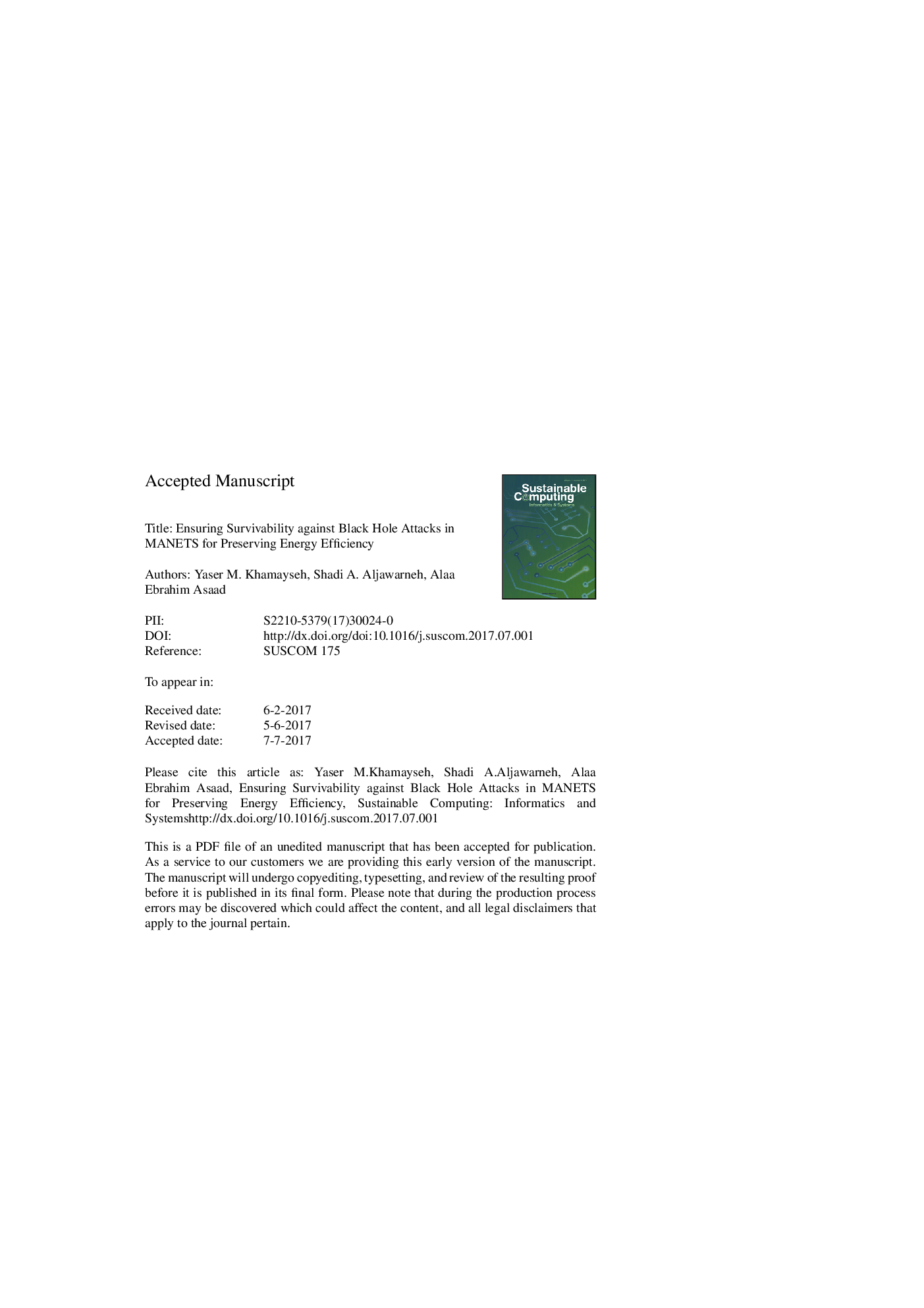| Article ID | Journal | Published Year | Pages | File Type |
|---|---|---|---|---|
| 6903004 | Sustainable Computing: Informatics and Systems | 2018 | 24 Pages |
Abstract
Detecting and neutralizing black hole node is an important task to utilize the network resources efficiently. Network devices spend more than 80% of its available power on communication rather than on processing. Designing an energy-efficient detection scheme is vital to prolong the network lifetime as it reduces the amount of traffic transmitted in the network. The proposed mechanism requires a minimal change to the routing protocol and a minimal overhead to the network. The proposed scheme benefits from the open transmission nature of wireless devices (i.e. minimizing energy consumption) and tries to build a cooperative environment to monitor and observe the behaviour of on-going transmission. In the proposed algorithm, the source node utilizes other nodes in the network (called observer node) to detect if the transmission of data packets to next hop is carried. In case of error, the observer node sends an error message (namely, OERR) to the source node. Upon receiving a repetitive OERR messages, the source node marks the observed intermediate node as a black hole. The performance of the proposed scheme is evaluated using simulation. The obtained results indicate the superiority of the proposed scheme. For example, the proposed algorithm enhances the delivery ratio in dense networks by 45.6% and in by 41% in sparse networks. Moreover, it enhances the dropped packet in dense networks by 75%, and by 63% in sparse networks.
Related Topics
Physical Sciences and Engineering
Computer Science
Computer Science (General)
Authors
Yaser M. Khamayseh, Shadi A. Aljawarneh, Alaa Ebrahim Asaad,
